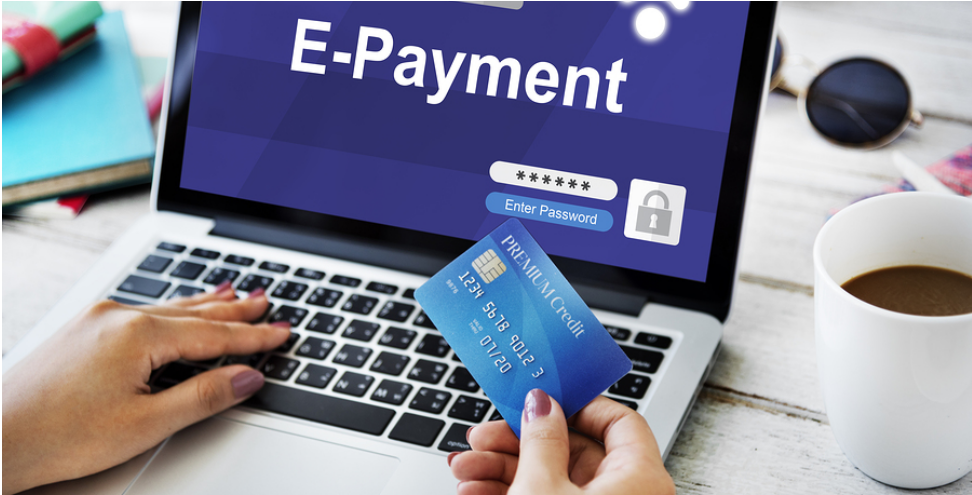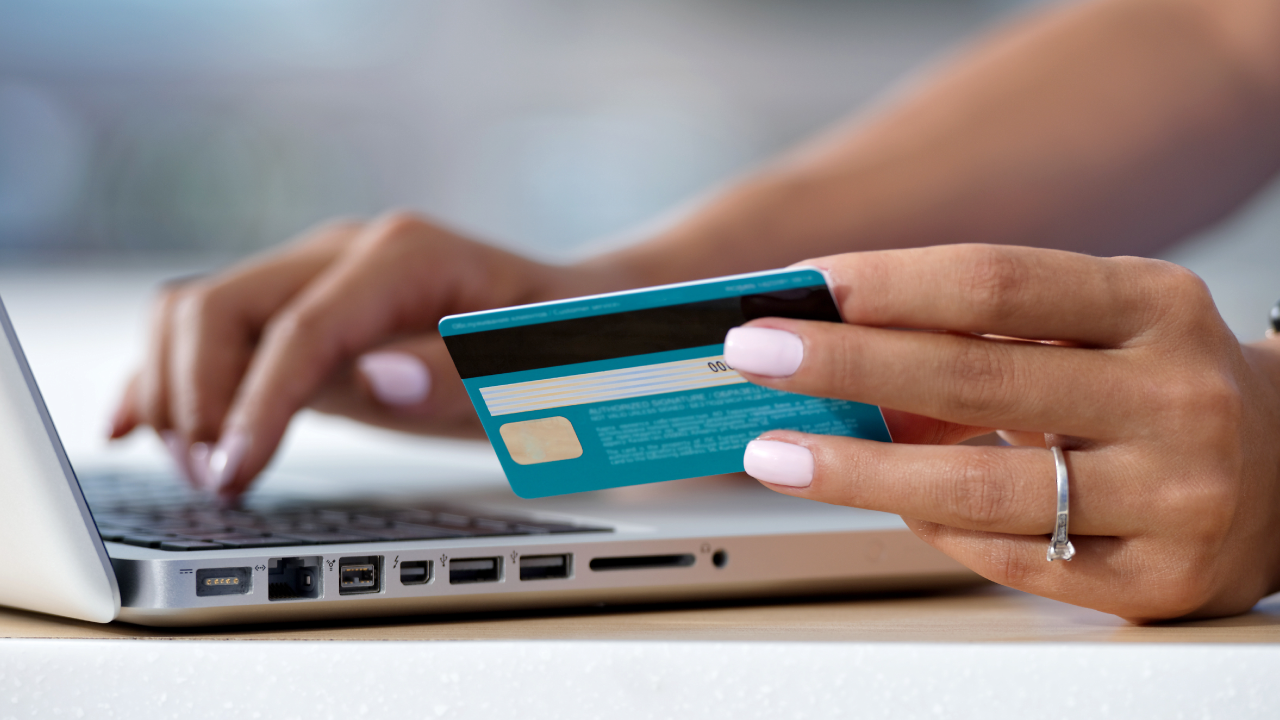Payment Gateway Advances - Transforming Online Transaction
Payment gateway advances, a crucial element in this process, have been experiencing substantial progress, directly shaping the dynamics of e-commerce, online retailers, and brick-and-clicks operations.
Author:Anderson PattersonReviewer:Emmanuella SheaJan 14, 202412.6K Shares257.8K Views

As we delve further into the digital age, businesses must adapt to meet evolving consumer demands, especially in the realm of payment processing. Payment gateway advances, a crucial element in this process, have been experiencing substantial progress, directly shaping the dynamics of e-commerce, online retailers, and brick-and-click operations.
What Exactly Is A Payment Gateway?
In simple terms, a payment gateway is like a digital cash register that ensures a secure transfer of a customer's payment details to a merchant's bank account. Whether it's an online purchase or an in-person transaction, this solution handles various forms of non-cash payments, including credit cards, debit cards, eChecks, and digital wallets.
Picture it as a secure tunnel in software form. It facilitates a connection between customers and merchants during online transactions or processing payment data in physical stores through POS systems or card readers. The primary function of a payment gateway is to securely capture payment information, verify the availability of funds in the customer's account, and facilitate the transfer of funds to the merchant.
In essence, the payment gateway acts as an intermediary, managing the flow of information between your store and your customer's credit card. As eCommerce and online transactions increasingly rely on credit cards and mobile payment solutions, these gateways become crucial for simplifying payments. For modern business owners, considerations include choosing payment processor partners, ensuring compliance with security standards like PCI DSS, and adapting to evolving credit card transactions and general commerce trends.
How Payment Gateways Work
The payment gateway plays a crucial role in electronic payment processing systems by serving as the front-end technology responsible for transmitting customer information to the merchant-acquiring bank, where the transaction is processed.
In the past, credit card transactions involved magnetic strips and paper signatures. With the advancement of chip technology, the need for signatures shifted to personal identification numbers (PINs), entered directly into the payment gateway hardware.
The accuracy of the PIN is verified using the Luhn algorithm. Contactless transactions have become prevalent today, with many customers opting to use their smartphones as payment devices instead of traditional credit cards.
The architecture of a payment gateway varies based on whether it's designed for in-store or online transactions. Online payment gateways rely on application programming interfaces (APIs) that facilitate communication between the website and the underlying payment processing network. In contrast, in-store payment gateways use POS terminals connected to the payment processing network through a phone line or an internet connection.
Example Of A Payment Gateway
Merchants have two main avenues to access payment gateway systems: partnering with merchant-acquiring banks or using their payment gateway systems. Major financial institutions like Bank of America (BAC) and JPMorgan Chase (JPM) offer sophisticated payment gateway systems in conjunction with their merchant-acquiring bank services.
Merchants enjoy flexibility in choosing payment gateway technologies, as long as they are compatible with the merchant-acquiring bank used for payment processing. Square (SQ) is a notable example of a modern payment gateway, focusing on adaptable mobile payments for retail businesses. Square's technology, such as Square Reader, enables merchants to accept payments in diverse locations, from conventions and farmer's markets to mobile food trucks.
With Square Reader, a small hardware attachment to a mobile phone allows customers to swipe their payment cards, and the payment information is transmitted through the phone's electronic connection. The Square Reader then forwards this information to the merchant's acquiring bank for prompt processing.
The landscape of payment gateways is continually evolving, with new products enhancing versatility and speed. In recent times, blockchain startups have even introduced payment gateways tailored for cryptocurrencies, indicating ongoing innovation in this space.
Benefits Of A Payment Gateway For Businesses
Convenience
Integration with a payment gateway offers the convenience of allowing customers to make purchases at any time, irrespective of whether the business is open or closed. This flexibility enables customers to shop at their convenience, providing a seamless and accommodating experience for both the business and its clientele.
Faster Payments
For business owners, receiving timely payments can be a challenge. Payment gateways address this by enabling customers to make instant payments, eliminating the need for scheduled payment agreements. This preference for immediate transactions benefits both the business and its customers, streamlining the payment process for a mutually beneficial outcome.
Enhanced Security
The primary concern for customers in online transactions is security. With credit card fraud resulting in substantial losses, amounting to 2.5 billion dollars in the United States as of 2017, security is paramount. Payment gateways play a crucial role in mitigating the risk of credit card fraud for several reasons:
- Secure Transmission: The customer's card information is securely transmitted to the payment gateway, ensuring that only the customer and their issuing bank have access to this sensitive information.
- PCI DSS Compliance: Payment gateways adhere to PCI DSS standards, guaranteeing that they follow specific security protocols to process customers' card information securely.
- 3-D Secure:Card services often include an additional security layer known as 3-D Secure. This protocol requires customers to create a password for each card used in online transactions, adding an extra layer of protection against unauthorized use.
How Online Payments Work With Payment Gateway
Merchant Account
A merchant account is a specific bank account that businesses use to manage incoming payments. In the course of a transaction, the customer's payment is initially directed to the merchant account. It remains there until the business transfers the funds to its regular bank account. To facilitate online payments, both a payment gateway and a merchant account are essential components.
Payment Processor
When a business initiates a charge for a customer's purchase, a payment processor is the service responsible for verifying the customer's card details to ensure they have sufficient funds in their account. If the funds are available, the payment processor authorizes the transaction, and the payment is then transferred to the business's account.
On the other hand, if there are insufficient funds, the transaction is declined. The payment processor plays a pivotal role in facilitating secure and efficient transactions between businesses and customers.
The following steps outline the process of conducting online payments through a payment gateway:
- Step 1: website setup and integration - Begin by setting up your website and linking it to a payment gateway to enable online payment processing.
- Step 2: customer purchase - Your customer initiates a purchase on your website by clicking on the payment link and providing their credit card or debit card details.
- Step 3: secure transmission to payment gateway - The order details, along with the card information, are securely transmitted to the payment gateway. This ensures that only the customer and their bank have access to the sensitive card details.
- Step 4: card verification and anti-fraud measures - The payment gateway verifies the customer's card details and checks for sufficient funds to complete the payment. Anti-fraud tools are also employed to prevent fraudulent activities during the transaction.
- Step 5: transaction initiation with issuing bank - The payment gateway sends a request to the customer's issuing bank to initiate the transaction. The issuing bank transfers the funds to the merchant bank, which then deposits them into the merchant account.
- Step 6: transaction notification and payment receipt - The merchant receives a notification indicating the status of the transaction. The timing of payment receipt depends on the payment gateway used, with most transactions being processed in real-time. However, in some cases, it may take up to 21 days if there are processing errors or delays.
Payment Gateways Limitations
Payment gateways vary in their capabilities, and it's essential to recognize and acknowledge certain limitations that are inherent to the infrastructure of these gateways when making your selection.
To delve deeper into this matter, take into account the following:
Payment Gateway Card Or Payment Limitations
While payment gateway providers often promote the universality of their services, they tend to downplay situations where they cannot process payments from certain card issuers and processing portals. Before choosing a payment gateway, it is crucial to clarify compatibility with your customer's preferred payment methods, identify any limitations, and be aware of exclusions.
Payment Options For International Shoppers
To appeal to a diverse global audience, merchants must verify the compatibility of their payment gateway with various online stores and payment platforms. For instance, in China, Alipay enjoys greater popularity compared to payment options familiar to U.S. customers.
International shoppers may also encounter elevated prices. While numerous payment gateway providers impose fixed transaction fees for both domestic and global transactions, some may levy higher charges for cross-border transactions.
Explore solutions like Webinterpret, which seamlessly integrates into your e-commerce platform, offering a fully localized international checkout process and enabling payments in 25 currencies.
Security
In our increasingly digital landscape, prioritizing security is paramount. According to recent findings, about two-thirds of customers would stop doing business with a retailer who had previously experienced a security breach.
While a reputable payment gateway typically ensures security, it's crucial to be mindful of certain vulnerabilities:
- Data breaches:Although TLS encryption aids most payment gateways in handling sensitive processing data such as card information, storing this data on a server still poses risks.
- Mobile payment concerns:Despite having control over transaction security, managing access to your customer's mobile device remains beyond your control.
- Malware:Malicious software capable of extracting passwords and infiltrating user accounts can exploit secure payment gateways, allowing seemingly authentic transactions to pass through, even if the transaction itself is fraudulent.
Choosing A Secure Payment Gateway
When choosing a payment gateway, numerous factors come into play, with security being paramount. As per an Experianreport, 55% of consumers emphasize security as the most crucial aspect of their online experience, and 49% express the desire for businesses to implement more visible security measures online.
To confirm that you're engaging with a secure payment gateway, inquire about the following:
Customer's Preferred Payment Methods
An essential inquiry is understanding what payment methods your customers currently employ for transactions. By aligning your payment gateways with the options they prefer, you can minimize issues and mitigate potential security risks.
Payment Gateway Integration With Existing Technology
Before choosing a payment gateway, it is crucial to assess the compatibility of its APIs and their seamless integration with your existing technology platforms. Opting for a gateway that aligns with your solutions streamlines processes and expedites payments, while selecting a disparate one may complicate operations. Numerous customizable gateways are available, ensuring easy integration with your platform of choice and enhancing convenience for both you and your customers.
Payment Gateway Fee Considerations
Evaluating the overall impact of e-commerce fraud on your profitability is crucial. The investment might not be worthwhile if the expenses incurred to address additional security issues and fraud detection outweigh the lower costs of a payment gateway. It's essential to assess the payment gateway fee and your security costs before making a decision.
Encryption Security
For secure encryption, it is advisable to collaborate with PCI-compliant entities. The Payment Card Industry Data Security Standard (PCI DSS) establishes a set of standards designed to maintain security protocols in the digital realm. Before finalizing your choice of a gateway, ensure that the selected provider adheres to PCI compliance. These standards are implemented to safeguard customer data and payment information.
The Evolving Landscape Of Payment Gateways
Historically, payment gateways served as intermediaries, facilitating transactions by authorizing credit card or direct payment processing. In the present day, these gateways have evolved into sophisticated systems that interconnect multiple acquiring banks and payment methods.
Modern payment gateways extend their services to initiate various payment types, including e-commerce, in-app, and point-of-sale payments, supporting a wide range of payment methods. Notably, despite playing a crucial role in transactions, payment gateways do not directly engage in the flow of money.
Impact Of Technological Advancements
In the digital transaction era, payment gateways must go beyond facilitation; they must safeguard sensitive data. Using technologies like SSL encryption ensures the security of information transmitted between the customer's browser and the merchant's web server.
Advanced payment gateways enable transaction data to be sent directly from the customer's browser to the gateway, reducing the merchant's PCI DSS compliance obligations without redirecting the customer away from the website.
The Future Of Payment Gateways
As technology advances, payment gateways evolve to meet the demands of modern e-commerce. They incorporate automatic fraud screening tools that analyze orders in real-time before sending the authorization request to the processor. These tools encompass geolocation, velocity pattern analysis, OFAC list lookups, 'deny-list' lookups, delivery address verification, computer fingerprinting technology, identity morphing detection, and basic AVS checks.
Some payment gateways also offer white-label services, allowing third parties to brand the technology as their own. This option enables entities like payment service providers, e-commerce platforms, ISOs, resellers, or acquiring banks to maintain an end-to-end user experience without taking on the added risk management and compliance responsibility of in-house payment operations.
Payment gateways continue to rapidly evolve, addressing the growing needs for security, efficiency, and user-friendly experiences in the digital age. Looking ahead, these advancements are expected to become even more seamlessly integrated into daily transactions, shaping the future of how we conduct business and interact with the online marketplace.
Payment Gateway Advances - FAQ
What Are The Top Five Payment Providers?
The top five international payment gateways are Amazon Pay, World Pay, PayPal, Stripe, and Adyen. Consider business scale, global vs. local reach, transaction fees, security protocols, and e-commerce platform integration.
Is PayPal A Payment Gateway?
No, PayPal is not a traditional payment gateway, but it does offer a payment gateway solution (Payflow) as part of its overall payment processing solutions.
Can I Build My Payment Gateway?
Creating a payment gateway from the beginning can be costly and may not be worth it. That doesn't even include the extra challenges of dealing with international transactions, foreign currencies, and following regulations.
Wrapping Up
With an improved understanding of price, functionality, and gateway security, your business will be well-equipped to select the right option for your needs and incorporate a new level of security that customers seek when making online purchases. Embracing the benefits of payment gateway advances can enhance your decision-making process and fortify the security measures essential for online transactions.
Jump to
What Exactly Is A Payment Gateway?
How Payment Gateways Work
Example Of A Payment Gateway
Benefits Of A Payment Gateway For Businesses
How Online Payments Work With Payment Gateway
Payment Gateways Limitations
Choosing A Secure Payment Gateway
The Evolving Landscape Of Payment Gateways
Impact Of Technological Advancements
The Future Of Payment Gateways
Payment Gateway Advances - FAQ
Wrapping Up

Anderson Patterson
Author
Anderson Patterson, a tech enthusiast with a degree in Computer Science from Stanford University, has over 5 years of experience in this industry.
Anderson's articles are known for their informative style, providing insights into the latest tech trends, scientific discoveries, and entertainment news.
Anderson Patterson's hobbies include exploring Crypto, photography, hiking, and reading.
Anderson Patterson's hobbies include exploring Crypto, photography, hiking, and reading.
In the Crypto niche, Anderson actively researches and analyzes cryptocurrency trends, writes informative articles about blockchain technology, and engages with different communities to stay updated on the latest developments and opportunities.

Emmanuella Shea
Reviewer
Emmanuella Shea is a distinguished finance and economics expert with over a decade of experience. She holds a Master's degree in Finance and Economics from Harvard University, specializing in financial analysis, investment management, and economic forecasting.
Her authoritative insights and trustworthy advice have made her a highly sought-after advisor in the business world.
Outside of her professional life, she enjoys exploring diverse cuisines, reading non-fiction literature, and embarking on invigorating hikes.
Her passion for insightful analysis and reliable guidance is matched by her dedication to continuous learning and personal growth.
Latest Articles
Popular Articles

